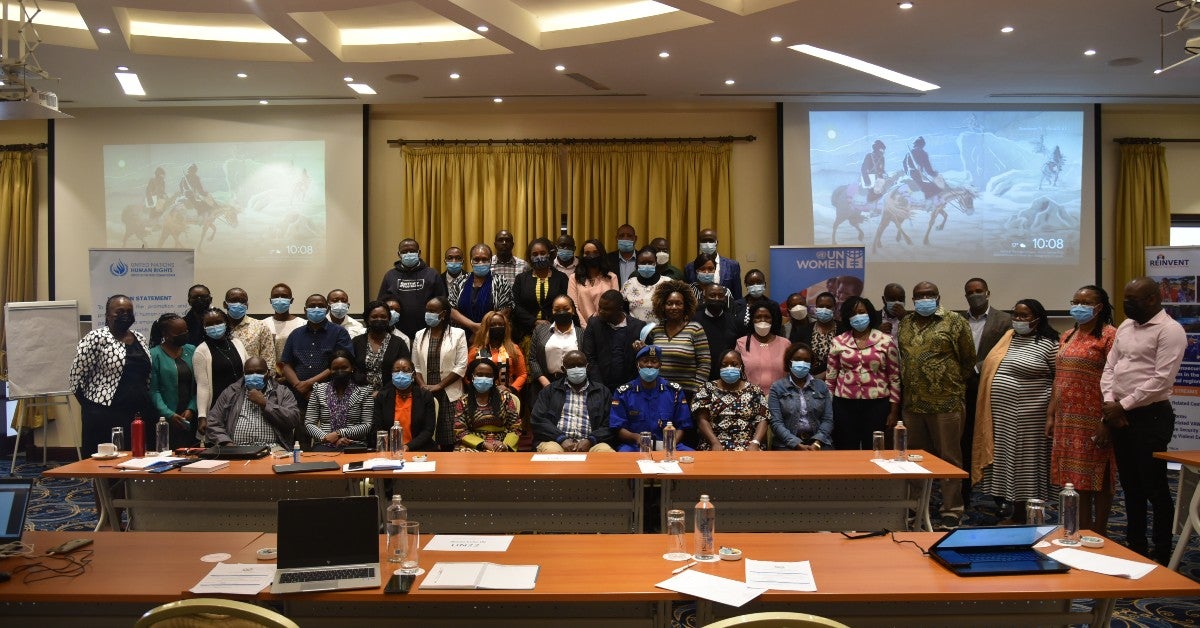UN and Kenya police host forum towards peaceful 2022 elections
Date:

The two day forum in Nakuru brought together a host of state and non-state actors, who collectively, are mandated to ensure Kenya’s elections will be safe and free from violence. Photo: UN Women/Luke Horswell
UN Women and OHCHR, in partnership with Kenya’s National Police Service (NPS), bring state and non-state actors together to map out key measures needed to prevent violence against women ahead of the 2022 general election cycle.
During the two-day forum in Nakuru County, the NPS presented the Election Security Arrangement Plan (ESAP) 2022, which was developed with Independent Electoral and Boundaries Commission (IEBC). The strategy is a one-year plan to guide multi-agency work and articulate collective strategy, commitments and actions in support of election security issues such as violence, intimidation, and corruption.
Christine Okeno, UN Women Ending Violence against Women Specialist, explains that 2022 preparations are a cause for optimism “as in previous elections, coordinating so many key players who have a collective mandate to keep elections in Kenya safe from violence, has been challenging. All actors are looking to enhance their monitoring and early warning mechanisms to best prevent outbreaks of conflict and violence.”
As the ESAP is finalised, discussions centred on measures most needed to prevent and respond to human rights violations, and in particular, violence against women in elections (VAWiE). Both state and non-state actors with participants expressed deep concern over serious human rights violations, specifically sexual and gender-based violence (SGBV) during elections that has become a recurrent feature of elections in Kenya and identified key drivers of these violations.
Hate speech and political incitement of violence was identified as one of the primary drivers of conflict. Lillian Mbilo, data analyst for Kenya National Commission on Human Rights (KNCHR) states: “We are already seeing situations of political intolerance. Political parties - or their supporters - will not allow a conducive environment for supporters of other parties to carry out activities in certain territories. We are also seeing some utterances from politicians which can be divisive and polarizing. These should not be coming from leaders who [effectively] command large numbers of followers.”
The stakeholders present agreed to forge a collective, unified approach in prevention and response to serious human rights violations and GBV during elections in 2022 general elections. Important next steps include consultative meetings around political parties’ primaries, forums on elections security for female aspirants, and police sensitisation and training.